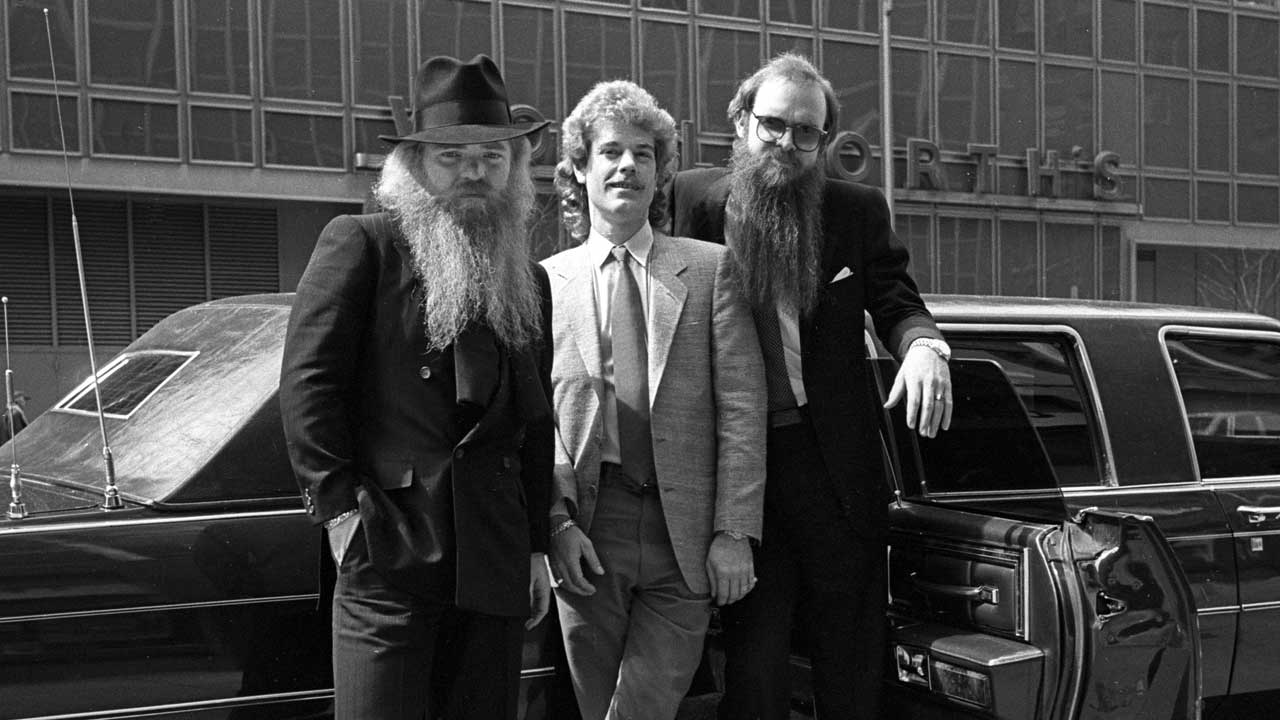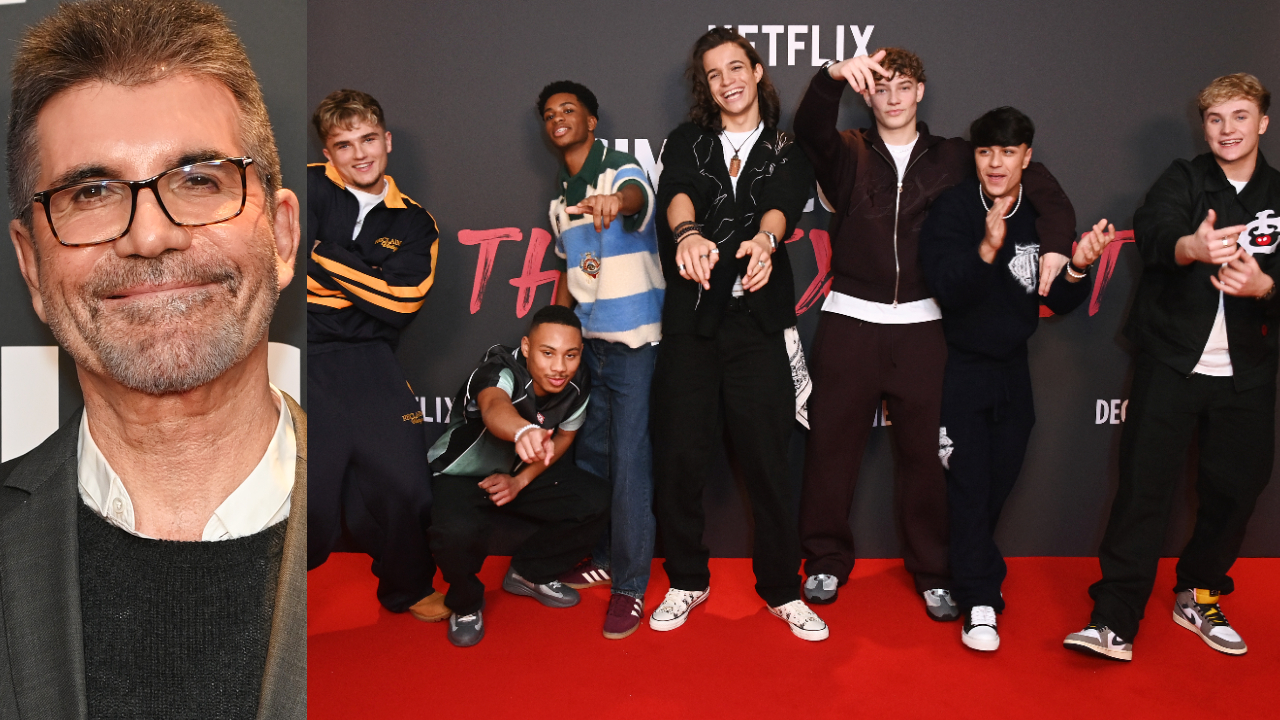"We were starting to work in the girl theme. Cars, girls, fast and loud – those elements were starting to gel": How ZZ Top reinvented themselves with Degüello to pave the way for Eliminator
With some top tunes, a vintage clavinet and a battery of effects plastered all over it, Degüello successfully updated ZZ Top’s old-school blues and pointed the way towards future superstardom

The popular perception is that ZZ Top morphed as they crossed the boundary line into the 80s. Where once the Texans had been a smooth-chinned, roadhouse-ready little ol’ blues outfit, runs the narrative, now they came with a thicket of facial hair, banks of synthesisers and furry spinning guitars to hypnotise the MTV generation.
The truth is a little more transitional, and best encapsulated by Degüello, the thumping sixth album that saluted the Top’s early-70s sound, spiced it with fresh flavours and instruments and began formulating the image that plunged them into 80s pop culture. As Billy Gibbons reflected in a 2013 interview: “Degüello was an interesting bridge from this hard-blues trio.”
A change was overdue. The band had already made a micro-step forward with 1976’s Tejas. But in the aftermath, the trio seemed rudderless, scattering to different continents, attending rehab and marking time while their record deal ran out. Gibbons recalled that they were “virtual unknowns to one another” when they finally reconvened for rehearsals, but there was at least some common ground. “We’d gotten really lazy,” he told the Caller-Times. “Nobody had bothered to shave.”
Shaving’s loss was songcraft’s gain. Their first record for Warners – and their sixth with producer Bill Ham – Degüello fused musical ideas with a fearlessness befitting an album named after an old Mexican battle song that celebrated slitting an opponent’s throat. This was a record that leaped from the roughed-up soul of Lowdown In The Street to the gonzoid Manic Mechanic, while songs like A Fool For Your Stockings signposted leery moments to come, most notoriously 1984’s Legs.
“Degüello still had the hallmarks of our humble beginnings,” Gibbons told Uncut. “[But] it was a little more R&B than just stone cold blues. We were starting to work in the girl theme. Cars, girls, fast and loud – those elements were starting to gel.”
Even when the material seemed traditional, the band took risks. All three members blew saxophone on Hi Fi Mama and She Loves My Automobile (Gibbons: “We learned how to create our own three-horn back line, like Little Richard”), and for I’m Bad, I’m Nationwide – a song that was ostensibly route-one boogie-blues – the band announced their musical curiosity with vocal effects and left-field instruments.
“Joey Long [bluesman] loaned me a multi-stringed mandolin-like instrument from Mexico, and I put it to good use on Nationwide,” Gibbons told Guitar World. “If you listen closely you can hear close-mic’d mandolin-sounding rhythm accompaniment. The track’s tail end alternates between three distinct effects created by an Echoplex doubler and a Maestro octave box.”
Sign up below to get the latest from Classic Rock, plus exclusive special offers, direct to your inbox!
While the lyrics for live favourite Cheap Sunglasses were knocked out during a road trip, the band took their time to flavour its funky strut with pedalboard exotica. “I played it through a Marshall Major, a short-lived two-hundred-watt beast, which had one blown tube,” noted Gibbons. “Hence the rather bulbous, rotund sound. There’s also a little bit of digital delay for that Bo Diddley impersonation at the tail out, and a Maestro Ring Modulator, which produces the strange tag to each verse. It appears three times, and it’s a pretty funny sound. That is one insane effect put to good use.”
But perhaps the defining addition on Degüello was the Hohner Clavinet keyboard that was sprinkled on the tracks and set up the band’s synth-heavy 80s output.
“By this time, Memphis had made its mark with us in a really positive way,” Gibbons said. “I don’t think anyone can go there and not be affected by all of the great music, especially stuff from the Stax/Volt era. Before we left, the song I Thank You came on the car radio. Isaac Hayes played this badass clavinet part that made the Sam & Dave version so distinctive.
"I was in the studio, talking to the engineer, and I remarked about how magical the sound of the clavinet was on that song, and he said: ‘Well, lo and behold, that very same clavinet is right out there in the other room’. We put it on I Thank You, Cheap Sunglasses – it started showing up on a lot of tracks.”
“It’s such an interesting sound,” added Gibbons in a separate interview, “that it ignited Dusty’s interest in learning some keyboard skills, and it was he who subsequently handled all the tickling of the ivories.”
Chalking up platinum sales and spitting out at least three tunes that still figure in ZZ Top’s setlists, Degüello was one of rock’s most graceful gearshifts, finding an apparently washed-up band retooling themselves for the decade ahead, while reconciling their founding boogie with broader horizons.
“Sometimes change is hard to take for some people,” Gibbons considered, “but we knew how far we could push things.”
Henry Yates has been a freelance journalist since 2002 and written about music for titles including The Guardian, The Telegraph, NME, Classic Rock, Guitarist, Total Guitar and Metal Hammer. He is the author of Walter Trout's official biography, Rescued From Reality, a music pundit on Times Radio and BBC TV, and an interviewer who has spoken to Brian May, Jimmy Page, Ozzy Osbourne, Ronnie Wood, Dave Grohl, Marilyn Manson, Kiefer Sutherland and many more.

